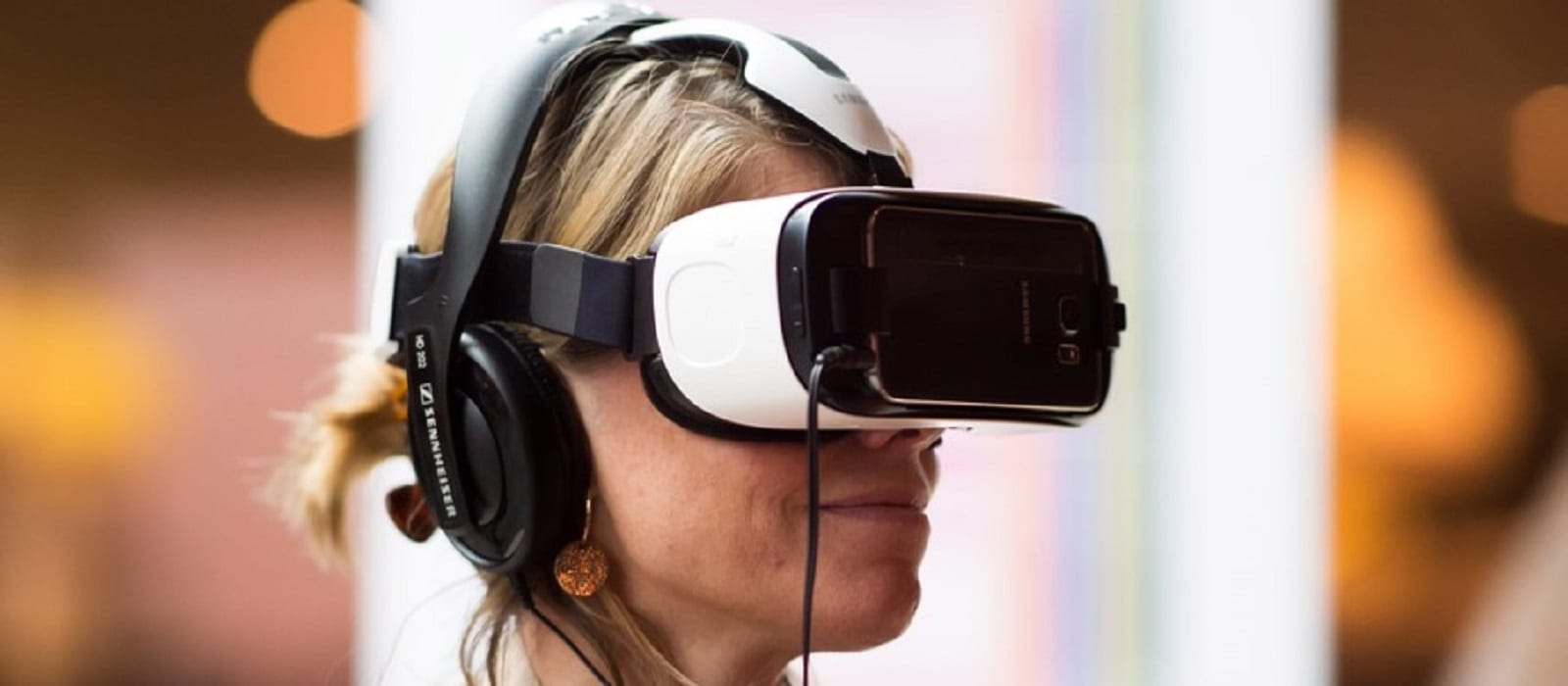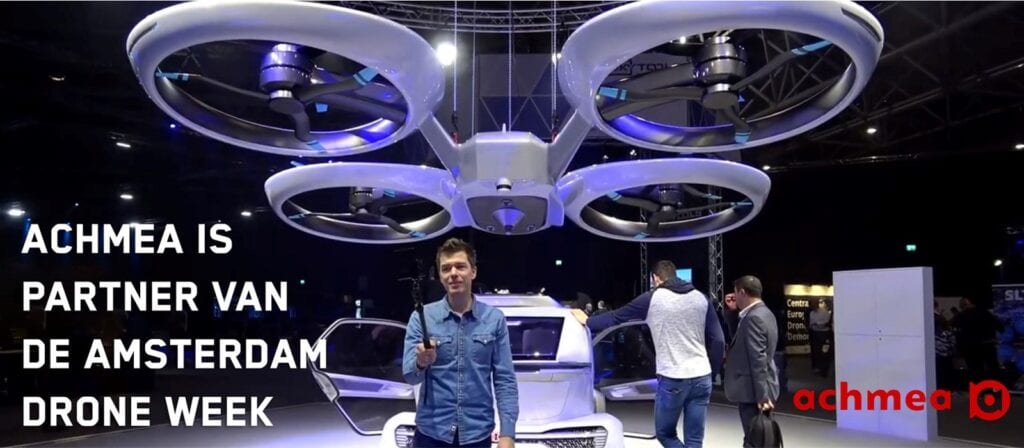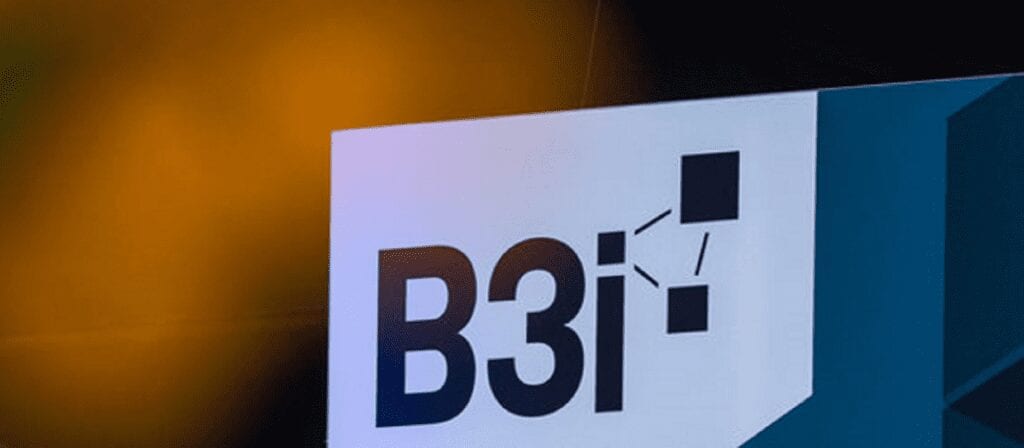In May 2019, Dutch ICMIF member Achmea invited its employees to its company offices in Leiden (Netherlands) for a three-day innovation and technology experience conference in which it showcased the many exciting technology projects that the cooperative insurer is developing or investigating in addition to other exciting products in the technology space. Approximately 800 Achmea employees attended the event and some students were also invited to attend.
As well as an opportunity for Achmea to showcase some of the exciting technological innovations that the company is working on, it was a chance to give employees the opportunity to experience other new technologies and experiences from outside the insurance sector. These included: virtual reality glasses; a medicine dispenser for old people which can be programmed to remind them to take their tablets; a 3D holographic projector and a “selfie cappuccino” where the Achmea employees could take selfies and have them “printed” on their coffee. The Achmea employees also had the opportunity to participate in LEGO® SERIOUS PLAY. The LEGO® SERIOUS PLAY® Method is a facilitated meeting, communication and problem-solving process in which participants are led through a series of questions, probing deeper and deeper into the subject. Each participant builds his or her own 3D LEGO® model in response to the facilitator´s questions using specially selected LEGO® elements. These 3D models serve as a basis for group discussion, knowledge sharing, problem solving and decision making.
Many of the technology products on show may seem destined for some time in the distant future but, in fact, much of the innovations that the Achmea employees were shown in the central hall of the Achmea office is available now or will be ready very soon. This was despite presentations having titles such as ‘Meet the care consumer of the year 2040’. Some of the applications shown to participants at the conference involve blockchain and chatbots which are already in use at Achmea with more planned for possible release later this year.
The Achmea Innovation Event is part of a bigger ‘innovation campaign’ started by the organisation one and a half years ago. Speaking about the event Willem van Duin (Chairman of the Executive Board) said: “As a cooperative insurance company we always think and act in the interest of our customers. Our aim to be relevant to customers and to be trendsetting drives all our improvement initiatives and innovations. Customers’ wishes are changing rapidly and innovation in digital customer service and the improvement of services to customers are topics which are always high on our agenda. That’s why at this Innovation Event we asked ourselves the question: “How are we going to help our customers in 2025?” The aim of the event (which is organised at different Achmea locations) is to give meaning to ‘innovation’; to inspire our colleagues and stakeholders; and to stimulate the innovation spirit within our organisation”.
One example of a new innovation shown at the event was the AI chatbot “Zoë” which is currently in use by customer service employees at Achmea’s Zilveren Kruis (healthcare insurance) business and which they have been working with for some time. This “virtual colleague” is not only linked to customer files, but also to the AI system IBM Watson. Zoë has access to each client’s files and the content of their specific healthcare policy in detail and can advise on that policy much better than employees can who have to look everything up. Before the implementation of the Zoë chatbot, the need for human employees to look up all the details of a policy caused delays in responding to customers’ needs, especially during the last three months of the year (a peak time for Achmea) as it was very difficult for employees to look into the different products in a short time.
According to Achmea, the experiences of using the Zoë chatbot in the call centre have been very positive. On the one hand, the answers provided are of a higher quality and there is also a shorter call time for customers than when the chatbot is not being used. Achmea is also receiving enthusiastic responses from employees who work with the chatbot. Experience so far shows that roughly the 3 million calls of 10 minutes duration per year that the Zilveren Kruis side of the Achmea organisation that are currently received can be reduced in time, providing cost savings for the insurer and improved service for the customer.
Later this year, the Zoë chatbot will be used for some direct interaction with customers via the Zilveren Kruis App. According to Achmea data, 96 percent of the answers given by Zoë are correct. At this time, however, Zoë is not allowed to make changes to policies independently, but this is being worked on and may be launched later if trials are successful. Zoë is also not yet voice-controlled and therefore not available to customers via the smart speaker. However, Achmea plans to run more trials with limited groups of customers to gain greater experience with a view to offering this type of service via the chatbot in the future.
A second bot that Achmea plans to launch this year will also be offered via the Zilveren Kruis app and will be called “Robin”. The app will have the ability to scan documents from, for example, a dentist and automatically assess the text. The processing of a claim will still be done manually but the scanning of the documents will be automated. An extra check of the documents will only take place if Robin does not understand something.
Another new development shared with employees at the Innovation event is the plan for Achmea’s reinsurance department to use a blockchain platform this year. In the case of reinsurance, Achmea is looking at ways of monitoring and maintaining the details of their reinsurance agreements using blockchain, the ledger that is also used for bitcoin transactions, as this helps to avoid disagreements over contracts.
The innovation event also showcased ways in which cars and autonomous vehicles could be insured using blockchain technology. Self-drive cars will have sensors that record all movements, says Achmea’s Innovation Manager Jeroen Bartelse. “In the event of an accident and/or damage, the car can, so to speak, complete the claim form itself, as it also has information about other vehicles around it.” Insuring autonomous is a challenge, says Bartelse. “The question is who is liable if you don’t have your hands on the wheel. Do you have to address the manufacturer or Google for data analysis?” Achmea is actively looking at the possibilities for insuring autonomous cars and vans and running a number of trials with these vehicles to understand the implications better.
As part of their investigations into autonomous vehicles, Achmea has joined the Mobility Open Blockchain Initiative (MOBI), an international consortium of more than thirty leading car manufacturers and suppliers. Parties such as BMW, General Motors, Ford, Renault and Bosch have set up MOBI to further develop blockchain for the mobility sector.
Achmea is also involved in the Amsterdam Drone Week (with Airbus, Boeing and Uber, among others) which will look at how drones will operate, be insured and regulated now and in the future. As drones will need insurance to be flown, “this gives us the opportunity to help shape the future of mobility,” says Bartelse.






